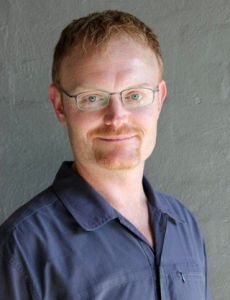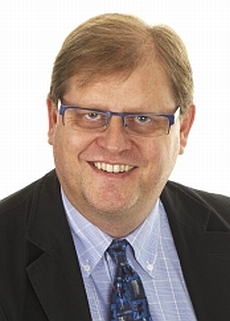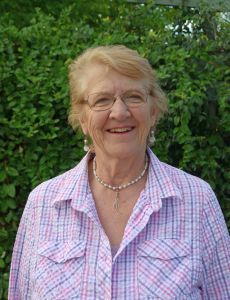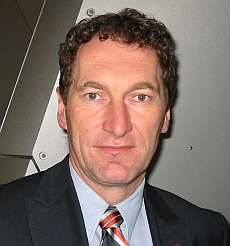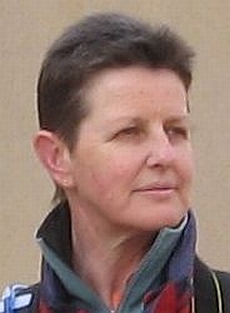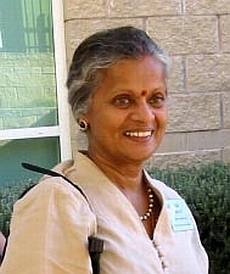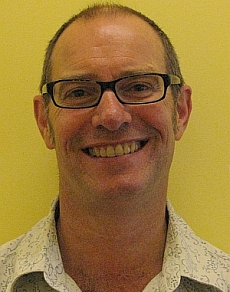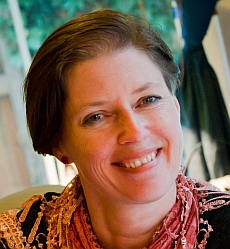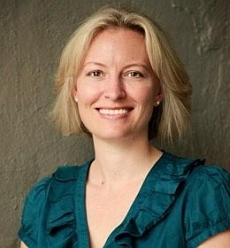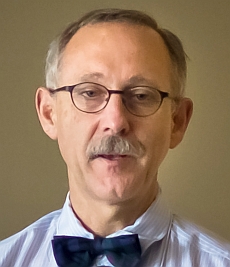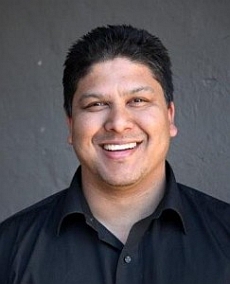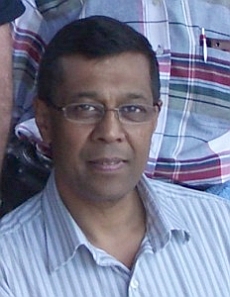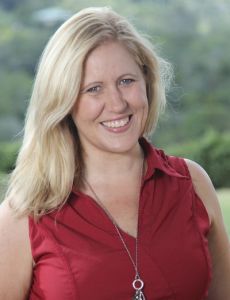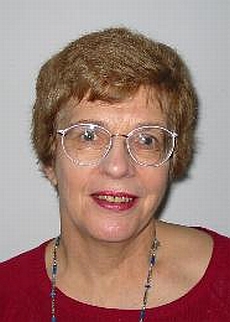The Clinical Advisory Group is composed of open-minded health care professionals who are experts in their field. Members are knowledgeable about polio and its late effects and demonstrate the ability to think analytically and strategically in advising Polio Australia on clinical matters. The group composition represents health care professionals in diverse areas of specialisation (for example: immunisation, rehabilitation, respiratory, physiotherapy, orthotics, psychology, research) and a balance of backgrounds (for example: geographic, cultural, gender).
|
|
Bernard Badorrek (New South Wales) is an experienced Orthotist specialising in the orthotic management of neuro-muscular disorders. Bernard has a special interest in lower-limb gait disorders resulting from stroke, brain injury, spinal injury, post-polio, motor neuron disease and peripheral neuropathy. Bernard is committed to evidence-based practice and implementing emerging technologies in his clinical practice. Bernard’s prescription of orthotic appliances is based in sound biomechanical principles and he is sensitive to the varied and complex needs of each patient. Bernard has a strong history in training and mentorship in the orthotics profession and is currently the Orthotic Student and Training Coordinator at the Princes of Wales Hospital in Sydney. |
|
Professor Booy has produced a number of videos on the need for immunisation - see the Chain of Protection website. In part of this video, Polio Australia's Gillian Thomas talks about the late effects of polio (13 mins 22 secs). |
Professor Robert Booy (New South Wales) is Head of Clinical Research at the National Centre for Immunisation Research and Surveillance (NCIRS). He is an Infectious Diseases Specialist and Paediatrician. Robert trained in paediatrics during the 1980s at the Royal Children’s Hospital, Brisbane, and spent much of the 1990s doing epidemiological research on life threatening infectious diseases in the United Kingdom. This included 4 years in Oxford where he completed a doctorate on the epidemiology and prevention of Haemophilus influenzae type b disease. In 1999 Robert was appointed Professor of Child Health, Head of Department, Royal London Hospital, Queen Mary and Westfield College, University of London. He returned to Australia in early 2005. Robert has conducted extensive research into serious infections and their prevention with over 150 scientific publications to his credit. He is on the Scientific Influenza Advisory Group (SIAG) for the Office of Health Protection, Department of Health and Ageing (DoHA) and the Chief Medical Officer’s Vaccine Advisory Group (VAG) for the Office of Health Protection, DoHA. He is also a member of the Paediatric Scientific Program Committee of the Royal Australasian College of Physicians (RACP), the Influenza Specialist Group (ISG) and the ISG Public Affairs & Advisory Committee, the Confederation of Meningitis Organisations (COMO), the Scientific Advisory Committee (sub-committee of the CHW Human Research Ethics Committee) and the NCIRS Scientific Advisory Committee. |
|
|
Ann Buchan (South Australia) trained in Melbourne then followed many years of Australian and overseas training and experience in Neurological and neuromuscular issues. She has been a tutor, educator and mentor for physiotherapy students and graduates. In 2004, she qualified as the first titled Neurophysiotherapist in Australia, with involvement in a wide range of state-wide community and educational activities, including workshops, clinical research, media production and palliative care. Ann feels strongly that people with neuromuscular and neurological conditions not only need to get the best out of their disability, but the best possible learning and caring environment is needed for that to occur. She has always had a special interest in long term disabilities – especially post-polio issues – and works in private practice at Unley Physiotherapy and at Aldgate Seniors on falls prevention. She helped set up the first Polio Clinic in South Australia and assisted with editing polio information handbooks. Ann believes that physical, emotional, social, mental and spiritual aspects must all be considered in treatment and a balance is needed between the art and science of Physiotherapy. |
|
|
Dr Stephen de Graaff (Victoria) is Director of Pain Services and Senior Rehabilitation Physician at Epworth Healthcare. He is a Fellow of the AFRM (RACP). Steve's areas of research interest include stroke rehabilitation, spasticity management, pain management, post-polio sequelae and Continuing Professional Development. Steve is currently Chairman of the Education Committee of the Australasian Faculty of Rehabilitation Medicine (RACP). In 2005 Dr de Graaff was interviewed for the video PPS: The Australian Experience where he gives a detailed explanation of the causes, diagnosis and treatment of post-polio problems. Visit this page to view the videos from this interview. |
|
|
Anne Duncan (Victoria) is the Outreach Coordinator of the Victorian Respiratory Support Service. Anne began working with ventilator dependent people in 1989 at Fairfield Hospital in Melbourne. At the time there were fewer than 40 people in Victoria using ventilators and 15 of them lived in the hospital. Anne was the Nurse Unit Manager of the ward from 1990 to 1998. In 1996 Fairfield Hospital closed and the unit moved to the Bowen Centre at the Austin hospital. In 1998, with Department of Health funding, Anne set up the Victorian Respiratory Support Service Outreach Service. This is a state-wide service that provides equipment, information and support for ventilator users living in the community. Anne operated alone in this role until 2005 when she took over the contract for ventilator service/repair and the staff expanded to manage to the additional work. The Outreach team now consists of 4 Nurses, 1 Bio-medical engineer and a part-time secretary. The team has 700 clients under their care, 600 of whom use a ventilator to help maintain their respiratory health. Approximately 10% of the clients are people living with the late effects of polio. |
|
Jega is a Senior Physiotherapist recently retired from Royal Perth Hospital, Shenton Park Campus, where she ran the Late Effects of Disability Clinic for more than a decade. Watch her talking here about her work with polio survivors (6 mins 50 secs). |
G. Jegasothy (Jega) (Western Australia) is a senior physiotherapist at Royal Perth Hospital, Shenton Park Campus, Perth, Western Australia. Jega's experience is in the area of Acquired Brain Injury (ABI) Rehabilitation over 13 years and in the area of Late Effects of Disability (LED) for 10 years. She has been involved with research in the area of the management of tone in ABI, publications in the area of hydrotherapy and lectures and in-service to physiotherapist and to the community in both ABI and LED. Currently Jega's area of concentration is LED, looking at improving efficiency in the management and running of a late effects clinic, networking with professionals for effective decentralisation of clinical services, and patient education. The Late Effects of Polio (LEOP) is the major component of the LED Clinic. The clinical knowledge gained from this clinic has been presented in a number of Polio Association Conferences and published in the Post-Polio Network (WA) (PPNWA) newsletter. The latest venture is a pilot project, in cooperation with PPNWA, titled Polio Self Management. The outcomes from this project will determine future Self Management Information Series. There are a number of areas for future development: rate of change in participation ability in LEOP, use of mobility aids in maintaining independence in life style; cost to patient and community; developing a handbook for patients and professionals about facing surgery; buying footwear; buying and use of mobility aids; wheelchair and posture; and fitness in LEOP. A nationwide advisory group would be more effective in developing these guidelines and Jega looks forward to working with this group. |
|
|
Phil Ladlow (Tasmania) graduated as a Physiotherapist from LaTrobe University, Melbourne in 1991. Since that time he has gained extensive experience across acute care and rehabilitation settings in both Hobart and Melbourne. Phil has held senior staff positions at the Royal Hobart Hospital, Monash Medical Centre and the Epworth Hospital, combining a clinical load and physiotherapy staff management in Neurosurgical, Medical and Rehabilitation wards. In 1999 he completed his Masters in Neurological Physiotherapy at Melbourne University, and in 2000 launched Neuromoves Physiotherapy, a neuromuscular rehabilitation private practice in Hobart, Tasmania. In 2008 Phil became a qualified instructor in Rehabilitation Pilates, utilising this dynamic but gentle form of exercise to optimise his client’s postural awareness, alignment, motor control, strength and overall function. In 2008 Neuromoves merged with Southern Physio to form AllCare Physiotherapy. Phil is currently co-director of this practice and has a strong interest in chronic pain; vestibular rehabilitation; posture, movement and balance disorders; spinal cord injury; traumatic and acquired brain injury and neuromuscular conditions. |
|
|
Dr Natasha Layton (Victoria) is an occupational therapist specialising in assistive technology and environmental interventions. Her PhD study focussed on assistive technology costs and outcomes. Natasha has worked with diverse populations in rehabilitation and community settings over the last 20 years. She is currently National Practice and Standards Manager with Occupational Therapy Australia, is an honorary affiliate of ILCs Australia, and is past Chair of Victoria's Aids and Equipment Action Alliance. Natasha represents ARATA (Australian Rehabilitation and Assistive Technology Association) on Standards Australia's Mobility Appliances Committee, and represents Australia on the International Standards Committee for ISO 9999 Assistive Products for Persons with Disability. |
|
|
Melissa McConaghy (New South Wales) has extensive experience in neurological rehabilitation and holds a Master of Health Science (Neurological Physiotherapy) and Graduate Certificate in Public Health. Melissa is also an APA Titled Neurological Physiotherapist and Chair of the APA NSW Neurology Group Chapter. Melissa established Advance Rehab Centre in 2005 after recognising the need for a rehabilitation service providing expert and professional neurological therapy in Sydney. During her career, Melissa has worked in a variety of rehabilitation settings both here and overseas including Wales, India, Thailand and England. She is a senior clinician and has been supervising and teaching junior staff for over eight years. Advance Rehab Centre now comprises a growing team of over 15 allied health members offering both a home-based service and purpose-built rehabilitation centre in St Leonards, Sydney. |
|
|
Dr Peter Nolan is a General Physician at Toowoomba Hospital, Queensland, as well as a Clinical Associate Professor of Medicine at the Rural Clinical School, University of Queensland. Peter has been working with polio survivors for a number of years and has a particular interest in respiratory problems in the post polio community. In December 2012 Dr Nolan gave two comprehensive presentations to Polio NSW members in Sydney: The Post-Polio Syndrome – An Orphan Disease, and Cough, Spit and Breathlessness: Respiratory Issues for Polio Survivors. Please visit the Polio NSW website to view the slides from, and videos of, Dr Nolan's talks. |
|
Watch this footage of the dramatic walking improvement afforded to polio survivor Ron Bell by a Stance Control Knee Ankle Foot Orthosis (2 mins 7 secs). Note that a SCKAFO is not suitable for all polio survivors - individual assessment is required. |
Darren Pereira (Victoria and New South Wales) is the Director of NeuroMuscular Orthotics and Principal Orthotist. He is Certified by the Australian Orthotics & Prosthetics Association (AOPA) and has completed international sub-specialty training in all aspects of orthotic management. Darren has a particular focus in neuromuscular disorders and is the Australian specialist in Knee Ankle Foot Orthoses (KAFO) and Stance Control Knee Ankle Foot Orthoses (SCKAFO). He completed his secondary education in 1989 at De La Salle College Malvern and commenced an undergraduate degree in Electronic Engineering at R.M.I.T the following year. At the end of first year, he transferred into the Bachelor of Prosthetics & Orthotics program at Latrobe University Melbourne and completed the undergraduate degree in 1994. Darren's clinical semester was completed in public practice at Rancho Los Amigos Hospital in Los Angeles California. He then spent two and a half years in private practice in Los Angeles before returning to the Royal Children's Hospital Melbourne in 1998. Darren held public appointments as the Chief of Prosthetics & Orthotics at St Vincent's Hospital Melbourne and Consultant Orthotist for Polio Services Victoria from 1998 - 2009. |
|
|
Dr Nigel Quadros (South Australia) is Director of Rehabilitation Services at the Queen Elizabeth Hospital and St Margaret’s Rehabilitation Hospital and also a Senior Clinical Lecturer at the University of Adelaide Healthcare. He is a Fellow of the AFRM (RACP). Nigel's areas of interest include stroke and general neurological rehabilitation, amputee rehabilitation, pain management, management of post-polio syndrome, and Continuing Professional Development. |
|
|
Kristy Rackham (Queensland) Kristy's experience in integrated health and natural therapies, particularly meditation, spans over 18 years. She now complements her extensive natural health experience with bio-medical knowledge as a Holistic Registered Nurse. Her work experience in holistic health encompasses positions such as meditation facilitator, massage therapist, energy healing, chiropractic assistant, and development director of a Melbourne-based natural therapy centre. Kristy published her first book titled "Head Space - Meditate Your Way to Study Success" in 2010 to assist students of all ages to improve learning outcomes and reduce their stress levels. She possesses a unique blend of expertise and diverse knowledge-base with which to educate and drive the mainstream public towards having optimal lifestyle sustainability. She writes, speaks and facilitates workshops and seminars on holistic health and lifestyle sustainability with passion and enthusiasm. With close family members diagnosed with chronic illnesses, Kristy has a special interest in holistic lifestyle management of chronic pain, Chronic Fatigue Syndrome, and lesser known and understood Ehlers Danlos Syndrome (EDS) and Post-Polio Syndrome (PPS). Kristy now juggles motherhood with nursing and part-time consultancy work with Polio Australia in the areas of Health Education and Public Relations from her home on the Sunshine Coast in Queensland. |
|
|
Dr Mary Westbrook (New South Wales) is Conjoint Associate Professor in the Centre for Clinical Governance Research, Australian Institute of Health Innovation, Faculty of Medicine, University of New South Wales. Her current research focus is patient safety. Before joining the Centre, Mary was Associate Professor in the Department of Behavioural Sciences, Faculty of Health Sciences, the University of Sydney. Much of her teaching and research there focussed on the social and psychological aspects of living with disability. She is a Fellow of the Australian Psychological Society. Mary has more than 200 professional publications including over 130 peer-reviewed research papers. Mary is a polio survivor and was a founding member of Post-Polio Network (NSW) [now Polio NSW] and through its website provides a global email information service for polio survivors and health care providers. Mary conducted the first research into the late effects of polio in Australia. She frequently writes articles on polio and its late effects for Australian and international post-polio newsletters, and has presented papers on these issues at conferences here and overseas. She is presently working on the Australian National Library’s oral history project on the polio epidemics. In 1998 Mary was awarded an AM for “services to people with disabilities particularly those suffering from post-polio syndrome, and to education in the field of health sciences research”. She is a member of the Medical Advisory Board of Post-Polio Health International, USA. |





